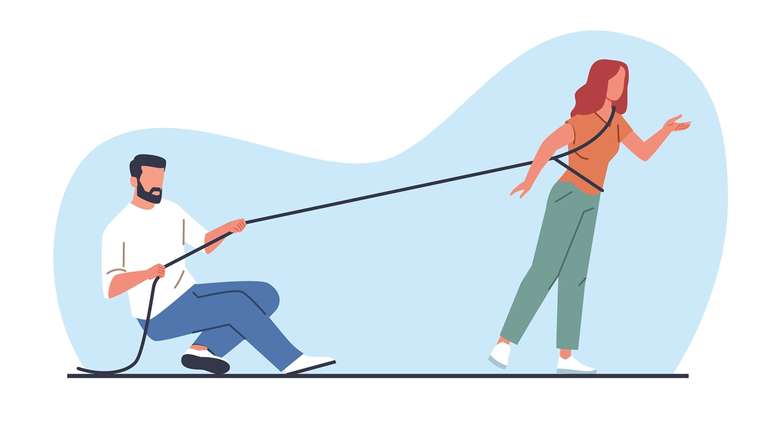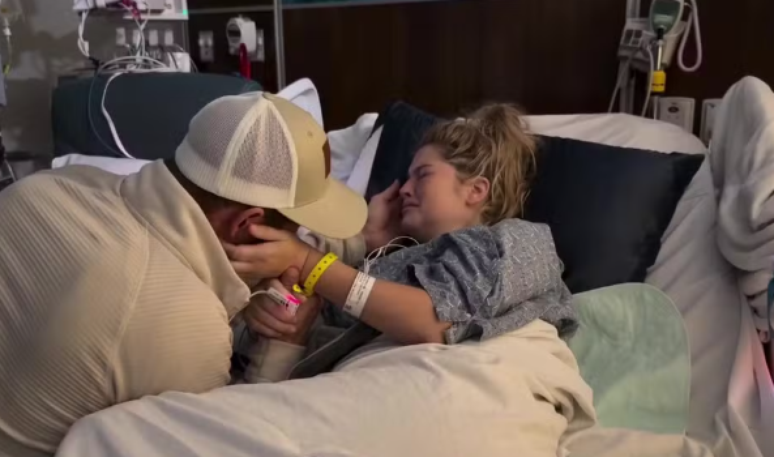Regardless of the causes, control can have a negative impact on the other person’s well-being
If controlling behaviors are a regular part of your dynamics with others, recognizing this interpersonal experience is the first step in making changes. Control means having a lot of power in a relationship, which allows you to direct another person’s thoughts and behaviors to align with your own.
Controlling behaviors in a relationship doesn’t always mean maintaining a sense of superiority. Sometimes controlling behaviors stem from past experiences where the feeling of being out of control created the need to always be in control.
Regardless of the underlying causes, however, controlling behaviors can have a negative impact on the health of the relationship and the well-being of the partner. Self-awareness about controlling behaviors is the first step in learning to stop controlling relationships.
How to change?
To exert less control, you must first recognize that others see you as controlling. Therapists say it can be exceptionally difficult to recognize controlling behaviors in ourselves because we often justify or rationalize our behaviors.
Controlling behaviors do not exist in people; rather, they exist within relationships. The biggest indicator that you are controlling is if your partner expresses that he feels controlled by you. Once controlling behaviors are brought to your attention, you can work to restructure them into more mutually beneficial actions. Check out some:
1. Learn about the positive characteristics of the relationship
Learning about positive relationship characteristics like boundaries and open communication can help identify areas that need work. Understanding what constitutes a healthy relationship can allow you to make informed decisions about your relationship and replace controlling behaviors with healthier ones.
2. Practice self-reflection
Once you become familiar with what constitutes a balanced, positive partnership, you can reflect on your own behaviors that seem out of alignment. Explore any fears or insecurities that may be driving the need for control. Focus on identifying patterns of control and understanding the underlying emotions that drive them. For example, are you afraid of abandonment or feeling inadequate, so you compensate by controlling? Doing this introspection regularly can help you actively work on restructuring your behaviors as they occur.
3. Work with your partner
Relationships are a two-way street. While you may have controlling tendencies in other aspects of life, controlling your interpersonal relationships requires the participation of at least one other person. For this reason, it is often necessary to collaborate with your partner to improve the dynamics of the relationship as a whole. To achieve this, the ideal is for the person with power to recognize the impact they have on the relationship. The one with less power would try to “grow” in power to become equal – in other words, to become more assertive (not aggressive), to communicate firmly but not in a confrontational manner.
4. Prioritize mutual decision making
Once you are aware that control is a challenge in your relationship, you can approach change by focusing on one area at a time, such as decision making. Instead of making a decision without asking for an opinion or convincing the other person to make the decision you want, it is essential to make an effort to reach a mutual decision. Practice collaborative decision making together, valuing the other person’s opinion and incorporating trust-building activities with them. Focus on fostering a sense of trust and reliability in the relationship.
5. Encourage independence
Control can often feel like codependency. If your partner doesn’t do things independently and doesn’t have individual interests or friendships, this may indicate an area you’ve checked out. If you have trouble letting your partner do things on their own, introspection can help you understand why you feel this way. Once you know where these feelings come from, you can communicate them to your partner and find ways to encourage his or her independence.
6. Take small steps to relinquish control
There will always be moments in life that you can’t control and that can be scary. Psychologists suggest practicing flexibility in small ways throughout the day to demonstrate that circumstances outside of your control can still have positive results. Let go of control and prove to yourself that everything will be okay. It’s difficult to feel discomfort and uncertainty, but keep practicing and everything will become easier.
7. Seek professional support
Many controlling behaviors have their roots in past experiences, but some mental health conditions can also contribute to the need to maintain control. Talking to a mental health professional can help you identify factors that contribute to controlling behavior and at the same time teach you new ways to process and cope with these underlying feelings.
Signs of controlling behavior
The hardest part of learning to stop controlling is recognizing what controlling behaviors feel like. Signs of controlling behaviors include:
-Dictate someone’s decisions or behavior: “You will do this, not that.”
-Making decisions without the contribution of a partner: “I’ve decided we’ll go here.”
-Manipulating someone through tactics such as guilt or intimidation: “If you loved me, you wouldn’t do this.”
-Limit who can see and where/when they can go: “She doesn’t like me. You can’t date her.”
-Limit self-expression with makeup, wardrobe or hairstyle: “None of my partners will have short hair.”
-Limit your partner’s access to finances or financial responsibilities: “Tell me what you need this money for.”
-Rejecting or belittling someone else’s ideas or opinions: “Don’t be silly. Don’t do that.
What causes controlling behavior?
Simply put, hurting people hurts people. Often, controlling people have been exposed to an environment where they themselves have no control and therefore need to take it on whenever they can. These behaviors may be rooted in a traumatic childhood or adverse adult experiences, for example, where the sense of helplessness is closely linked to extremely negative experiences such as: abandonment, neglect, substance abuse or dependence on a parent and trapped relationships during early childhood.
If left unaddressed, these negative experiences can affect your mental health and overall well-being as you age. This can lead someone to adopt different coping mechanisms. Among these are responses to trauma, such as defensiveness, which involves controlling the environment as much as possible.
You need to first identify the unhealed parts of your psyche and then pay attention to the physical, emotional and mental warning signs to help you control yourself when you feel them coming. So, you should apologize and face what happened to you, and return to your partner after you have established yourself strongly and comfortably as a wise adult.
Source: Psych Central
Source: Terra
Ben Stock is a lifestyle journalist and author at Gossipify. He writes about topics such as health, wellness, travel, food and home decor. He provides practical advice and inspiration to improve well-being, keeps readers up to date with latest lifestyle news and trends, known for his engaging writing style, in-depth analysis and unique perspectives.









